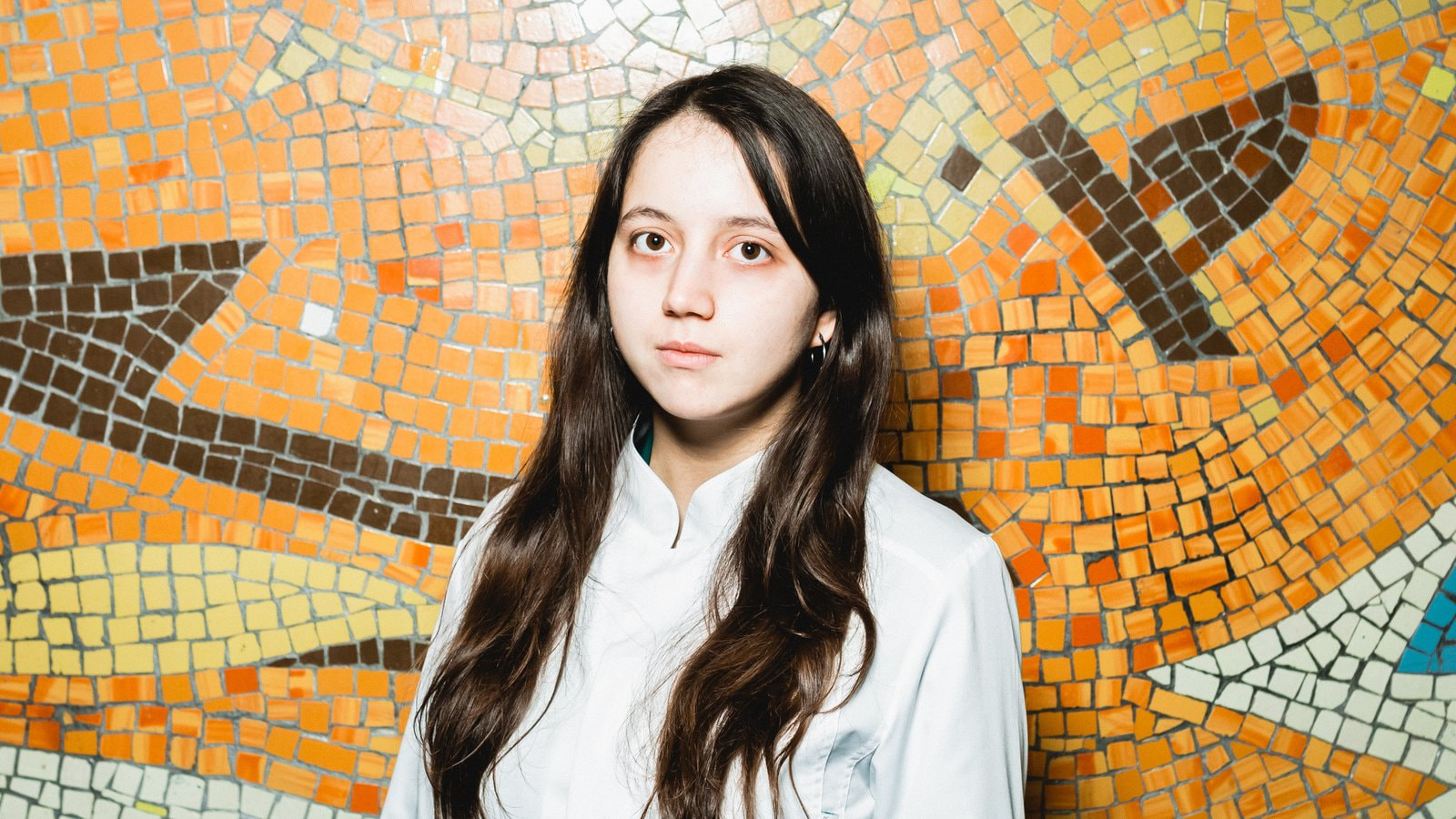Alina Khayrutdinova’s Diary
A female mediator’s diary
Let my diary be a piece of fabric composed of fragmentary notes, observations, and thoughts. It is not an attempt to remember every workday as a special one (even though they were special, although I only had seven workdays overall). Written retrospectively, this product is rather a mix of observations.
While preparing for Art Experiment, I accidentally met Yulya and Zhenya at Khodynka Gallery. They are also mediators and my mates from the Ural Industrial Biennial. Yulya quoted someone who said that mediation means “setting up a situation”. A situation that encourages to one discuss, dispute, reify, reject, mellow out, etc. I remembered these words very well. I can count several situations based around detailed dialogues that I had with visitors, but I’m afraid I cannot call any of them a situation of that very type. Perhaps, this is both due to the lack of shifts I took and because we were very restricted in terms of time, meaning long conversations had to be limited. I guess it is reasonable to recognize that I haven’t been able to provide “proper mediation” yet. I felt unity and mutual agreement with those who underlined the unique and special nature of genuine mediation at our final mediators’ meeting.
Our duty was to meet visitors before they entered the display, and once I had paranoid dreams about gathering visitors in the metro vestibule—so deeply the working process penetrated my mind!
I also believe that the best mediation, the purest mediation is, in my view, speaking metaphorically, a person wearing a T-shirt with the print “ask me” on it. So that the visitor could approach a male or female mediator having already developed some emotional background/ question/ request. Otherwise it is difficult to abstract oneself from the fact that, as a mediator, I am not supposed to talk as much as, using the market slang, to accompany, warm up, and take care of visitors during the tour.
On the other hand, I am writing this right now and think: I simply need to learn how to “attack” people in order to slightly destabilize them wherever possible and necessary (don’t get me wrong though, I’m not an aggressive person, I am talking about something else…). Otherwise, is it possible at all to discuss contemporary art using ceremonial language and smiling?
One of my goals was to learn to speak about art in simple words. As someone who studies art history and regularly communicates with people from the art world, I still feel huge professional deformation (and haven’t been able to rid of this feeling yet). But it is necessary to interpret art in a simple way for those who encounter it for the first time, or who are actually indifferent toward it before the conversation begins. Maybe I managed to do so in certain cases, but it is hard to get away from oneself: when I had a group of artists, art historians, museum workers, I immediately knew it and enjoyed such shifts most of all, I can tell you in confidence. What can I say, it’s all about common interests.
Information from the fields of knowledge that you never dealt with before also invokes extreme fervor. Once, I managed to talk to a female biology student about the mechanisms that people use to perceive smells; another visitor explained the system of outer space to the rest of the group in front of Katie Paterson’s Candle piece. Once, I was walking to the underground together with two women from one of my groups. We discussed the project, art, museums, and life in general. After noticing them in the exhibition space, I instantly realized how much they reminded me of my mother. Apparently, it was the “Freud in action” effect, and it seems to me that personal motives play a significant role in human communication.
No one likes the smell of the flask accompanying Kustodiev’s A Merchant’s Wife. Nor does anyone agree that it resembles the way a market/painting would actually smell. This is almost an axiom.
Moving away from the project and people, toward what is left of it now, I can say that the thing that makes me especially happy is the acquaintance with the staff of Garage who often remain depersonalized: security staff, invigilators, information desk workers. How much attention do we usually pay to those who ensure the Museum operates on a daily basis? We usually remember some big names. I enjoy hearing the security guy saying “Hello, comrade mediator” to me as I enter the Museum, being in good relations with the guys on information points, coming to the show, seeing familiar faces and exchanging smiles with each other.
